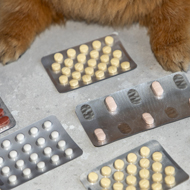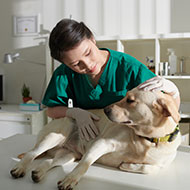No evidence of pet dogs or cats catching bird flu in the UK.
The UK Government has published updated advice for pet owners on how to keep their pets safe during the ongoing avian influenza outbreak.
Although avian influenza viruses primarily affect birds, they can also occasionally spread to mammals, including dogs, cats, and other pets. Such cases are likely to be associated with the consumption of infected birds or prolonged contact with a contaminated environment.
The latest advice, published by the Department for Environment, Food and Rural Affairs (Defra), is for pet owners to prevent their pets having any close contact with dead or sick wild birds.
Pets should also be kept away from droppings and feathers from wild birds, as well as from feed and water bowls which wild birds could have accessed.
When going on a walk, the advice is to keep dogs under control to avoid contact with wild birds and not to enter areas where there are signs explaining that restrictions are in force due to confirmed cases in poultry, other captive birds or kept mammals, unless permission has been given by the Animal and Plant Health Agency.
Owners should also avoid feeding their pet with non-commercial raw meat from poultry, game birds, wildfowl or other wild birds.
A Defra spokesperson said: “The latest evidence suggests that the avian influenza viruses we’re seeing circulating in birds do not spread easily to people, and there is no evidence that pet cats or dogs are infected in the UK at present.
“The updated guidance provides members of the public with useful information on how to keep their pets safe, and owners should contact their vet if they have any concerns about their health or welfare.”
The full guidance can be read online.
Image (C) Shutterstock






 The latest
The latest 
